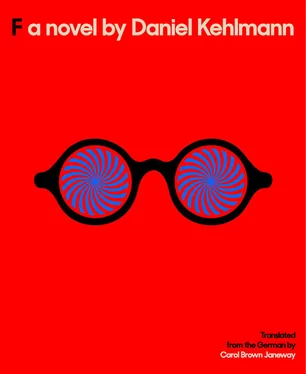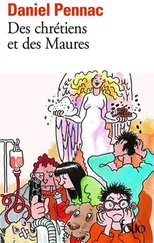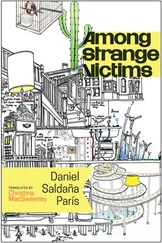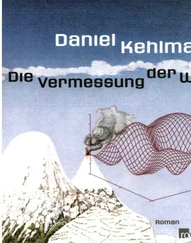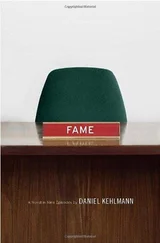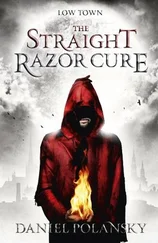“Rapeseed or something.”
“I don’t even know what that is.”
“Cars can drive using it.”
“Talk to Eric. He has money, and he understands a lot more about investing.”
“But I asked you .”
“Talk to Eric, Mother. I’ve got stuff to do now.”
“Lunch?”
“Talk to Eric.”
She hangs up and I set off. Down the stairs, across the square in the heat of the sun, then into the subway. The escalator takes me into the cool twilight of the tunnels.
The train pulls in immediately, and the compartment is half empty. I sit down.
“Friedland!”
I look up. Next to me, hanging onto the strap, is the art critic of the Evening News .
“You, here?” he cries. “You in the subway, of all people?”
I shrug.
“It’s not possible!”
I smile. The main thing is not to have him sit down next to me.
He slaps me on the shoulder. “Is this seat still free?”
His name was Willem and he was a Flemish student, eccentric, noisy, lovable, quick-tempered, and unfortunately not very talented. As an admirer of Nicolas de Staël, he was an abstract painter, which I held against him, I called it cowardly and imitative, because I was a Realist, an admirer of Freud and Hockney, which he held against me, calling it cowardly and imitative. We fought a lot, we drank a lot, we did drugs in moderation, we wore silk shirts and let our hair grow down to our shoulders. For a short time we shared a studio in Oxford, which was actually nothing more than a room above a laundry. He painted by the north-facing window, I painted by the west-facing window, there was a foldout bed that we used extensively, and we felt the future looking back at us, as if later art historians were observing us intently. When he broke off his studies, I told him he was lazy and didn’t break off mine, and he told me I was petit bourgeois.
During our vacation we explored the damp green expanses of Wales, climbed hills in the twilight, sought out cliffs and steep ravines, and once we made love on a stone slab covered with runes, which was even more uncomfortable than we’d imagined. We argued, we threatened each other, we screamed, we drank our way to reconciliation and then drank ourselves back into new quarrels. We filled our sketch pads, we hiked at night, we waited in the clammy dawn hours for the sun to rise over the wan gray-green of the water.
At the end of the vacation, I went back to Oxford and he went to Brussels to convince his father to keep giving him money. It was 1990, Eastern Europe had freed itself, and because nobody wrote emails yet, we sent each other postcards almost every day. Even today I worry that all my effusions — of philosophizing, of romance and hopes and rage — may still be stored in a drawer somewhere. Later, I destroyed his mail because it would have seemed too theatrical to send it all back to him.
For when I went to Brussels during the next vacation, I realized that something had changed. We looked just the way we did before, we did the things we’d always done, we had the same conversations, but something was different. Perhaps it was only that we were so young and were afraid of missing something, but we’d started to bore each other. To balance things out, we talked even louder and fought even more. We stayed awake for three nights in a row in the rhythmic din and flickering light of one club after another, drunk with exhaustion and excitement, until all of them formed a single blur and all faces melted into a single face. At some point we stood in the museum arguing about Magritte, then we were lying in the grass again, then we were in his apartment, and suddenly we’d split up, neither of us knew how or even apparently why. Willem threw a bottle at me, I ducked, it smashed against the wall above my head; luckily it was empty. I ran down the stairs, I had left my suitcase standing there, he yelled after me, his voice echoing through the stairwell, then he yelled out the window that I should come back, that I should never show my face again, that I should come back, and only when I could no longer hear his voice did I ask the way to the station. A woman gave me worried directions, I was in fact very pale, and suddenly I saw the poster. It was the same photograph, and it was also the same words: Lindemann will teach you to fear your dreams .
At the end of the show, which I couldn’t watch — I had wanted to rest on a park bench and had fallen asleep until the early evening — I was standing in front of the theater. The people were just coming out. I looked for the canteen. Lindemann was sitting hunched over a table eating soup, and looked up in irritation when I sat down with him.
“My name is Ivan Friedland. Will you give me an interview? For the Oxford Quarterly ?” I didn’t know if there was an Oxford Quarterly or not, but this was in the days before the Internet, it was hard to check things out.
Physically he hadn’t changed, the lenses in his eyeglasses reflected back the world, and the green handkerchief protruded from his breast pocket. As I began to ask him questions, I noticed how shy he was. Minus the spotlights and an audience, he came off as lost and insecure. He straightened his glasses, smiled in a stilted way, and kept touching the top of his skull as if to reassure himself that the few remaining hairs were still in place.
Hypnosis, he said, did not involve a single phenomenon but a cluster: the readiness to submit to an authority, a common vulnerability, a general openness to suggestion. Only occasionally were more mysterious operations of the conscious mind involved, but these had not yet been scientifically investigated because no one wanted to get involved in research of that kind. All of which led to the fact that a person could lose superficial control of their own will for short periods.
He was seized by a fit of coughing, and soup ran down his chin.
He used the word “superficial,” he then explained, because under normal circumstances nothing someone didn’t wish to experience or do could be induced in them through a trance. Only rarely was anything spiritually profound stirred into life.
I asked what he meant by this, but he was already elsewhere in his thoughts and began to complain. He complained about the low fees, he complained about the arrogance of TV executives, he complained about a broadcast that had cut his appearance, he complained about the Stage Artists’ Union, and in particular he complained about their pension fund. He complained about the endless train journeys, the delays, the sloppily organized timetables. He complained about bad hotels. He complained about good hotels, because they were too expensive. He complained about stupid people in the audiences, he complained about drunks in the audiences, and aggressive people in the audiences, and children in the audiences, and people who were hard of hearing in the audiences, and psychopaths. It was astonishing, according to him, how many psychopaths would crop up in a single hypnosis show. Then he went back to complaining about fees. I asked if there was anything else he would like to eat, the Oxford Quarterly was paying, and he ordered the schnitzel and French fries.
“To go back for a moment,” I said. “The operations of the conscious mind.”
Right, he said. Mysterious operations, yes, that was what he had said. Mysterious to him too, even with everything he’d seen in his time. But of course he wasn’t an intellectual and so he was unqualified to offer explanations. He had not chosen to embark on this particular profession, he’d actually studied something quite different.
“Such as? What did you study? What other things?”
The waitress brought the schnitzel. He asked if I’d enjoyed the show.
“Very impressive.”
Читать дальше
